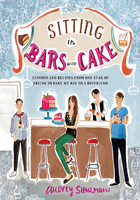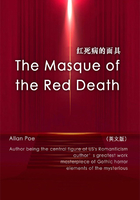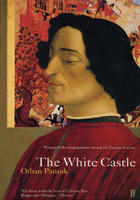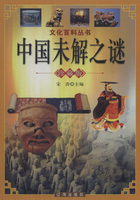Wherein Nicholas at length encounters his Uncle, to whom he expresses his Sentiments with much Candour. His Resolution.
Little Miss La Creevy trotted briskly through divers streets at the west end of the town, early on Monday morning-the day after the dinner-charged with the important commission of acquainting Madame Mantalini that Miss Nickleby was too unwell to attend that day, but hoped to be enabled to resume her duties on the morrow. And as Miss La Creevy walked along, revolving in her mind various genteel forms and elegant turns of expression, with a view to the selection of the very best in which to couch her communication, she cogitated a good deal upon the probable causes of her young friend's indisposition.
'I don't know what to make of it,' said Miss La Creevy. 'Her eyes were decidedly red last night. She said she had a headache; headaches don't occasion red eyes. She must have been crying.'
Arriving at this conclusion, which, indeed, she had established to her perfect satisfaction on the previous evening, Miss La Creevy went on to consider-as she had done nearly all night-what new cause of unhappiness her young friend could possibly have had.
'I can't think of anything,' said the little portrait painter. 'Nothing at all, unless it was the behaviour of that old bear. Cross to her, I suppose? Unpleasant brute!'
Relieved by this expression of opinion, albeit it was vented upon empty air, Miss La Creevy trotted on to Madame Mantalini's; and being informed that the governing power was not yet out of bed, requested an interview with the second in command; whereupon Miss Knag appeared.
'So far as I am concerned,' said Miss Knag, when the message had been delivered, with many ornaments of speech; 'I could spare Miss Nickleby for evermore.'
'Oh, indeed, ma'am!' rejoined Miss La Creevy, highly offended. 'But, you see, you are not mistress of the business, and therefore it's of no great consequence.'
'Very good, ma'am,' said Miss Knag. 'Have you any further commands for me?'
'No, I have not, ma'am,' rejoined Miss La Creevy.
'Then good-morning, ma'am,' said Miss Knag.
'Good-morning to you, ma'am; and many obligations for your extreme politeness and good breeding,' rejoined Miss La Creevy.
Thus terminating the interview, during which both ladies had trembled very much, and been marvellously polite-certain indications that they were within an inch of a very desperate quarrel-Miss La Creevy bounced out of the room, and into the street.
'I wonder who that is,' said the queer little soul. 'A nice person to know, I should think! I wish I had the painting of her: I'D do her justice.' So, feeling quite satisfied that she had said a very cutting thing at Miss Knag's expense, Miss La Creevy had a hearty laugh, and went home to breakfast in great good humour.
Here was one of the advantages of having lived alone so long! The little bustling, active, cheerful creature existed entirely within herself, talked to herself, made a confidante of herself, was as sarcastic as she could be, on people who offended her, by herself; pleased herself, and did no harm. If she indulged in scandal, nobody's reputation suffered; and if she enjoyed a little bit of revenge, no living soul was one atom the worse. One of the many to whom, from straitened circumstances, a consequent inability to form the associations they would wish, and a disinclination to mix with the society they could obtain, London is as complete a solitude as the plains of Syria, the humble artist had pursued her lonely, but contented way for many years; and, until the peculiar misfortunes of the Nickleby family attracted her attention, had made no friends, though brimful of the friendliest feelings to all mankind. There are many warm hearts in the same solitary guise as poor little Miss La Creevy's.
However, that's neither here nor there, just now. She went home to breakfast, and had scarcely caught the full flavour of her first sip of tea, when the servant announced a gentleman, whereat Miss La Creevy, at once imagining a new sitter transfixed by admiration at the street-door case, was in unspeakable consternation at the presence of the tea-things.
'Here, take 'em away; run with 'em into the bedroom; anywhere,' said Miss La Creevy. 'Dear, dear; to think that I should be late on this particular morning, of all others, after being ready for three weeks by half-past eight o'clock, and not a soul coming near the place!'
'Don't let me put you out of the way,' said a voice Miss La Creevy knew. 'I told the servant not to mention my name, because I wished to surprise you.'
'Mr Nicholas!' cried Miss La Creevy, starting in great astonishment. 'You have not forgotten me, I see,' replied Nicholas, extending his hand.
'Why, I think I should even have known you if I had met you in the street,' said Miss La Creevy, with a smile. 'Hannah, another cup and saucer. Now, I'll tell you what, young man; I'll trouble you not to repeat the impertinence you were guilty of, on the morning you went away.'
'You would not be very angry, would you?' asked Nicholas.
'Wouldn't I!' said Miss La Creevy. 'You had better try; that's all!'
Nicholas, with becoming gallantry, immediately took Miss La Creevy at her word, who uttered a faint scream and slapped his face; but it was not a very hard slap, and that's the truth.
'I never saw such a rude creature!' exclaimed Miss La Creevy.
'You told me to try,' said Nicholas.
'Well; but I was speaking ironically,' rejoined Miss La Creevy.
'Oh! that's another thing,' said Nicholas; 'you should have told me that, too.'
'I dare say you didn't know, indeed!' retorted Miss La Creevy. 'But, now I look at you again, you seem thinner than when I saw you last, and your face is haggard and pale. And how come you to have left Yorkshire?'
She stopped here; for there was so much heart in her altered tone and manner, that Nicholas was quite moved.
'I need look somewhat changed,' he said, after a short silence; 'for I have undergone some suffering, both of mind and body, since I left London. I have been very poor, too, and have even suffered from want.'
'Good Heaven, Mr Nicholas!' exclaimed Miss La Creevy, 'what are you telling me?'
'Nothing which need distress you quite so much,' answered Nicholas, with a more sprightly air; 'neither did I come here to bewail my lot, but on matter more to the purpose. I wish to meet my uncle face to face. I should tell you that first.'
'Then all I have to say about that is,' interposed Miss La Creevy, 'that I don't envy you your taste; and that sitting in the same room with his very boots, would put me out of humour for a fortnight.'
'In the main,' said Nicholas, 'there may be no great difference of opinion between you and me, so far; but you will understand, that I desire to confront him, to justify myself, and to cast his duplicity and malice in his throat.'
'That's quite another matter,' rejoined Miss La Creevy. 'Heaven forgive me; but I shouldn't cry my eyes quite out of my head, if they choked him. Well?'
'To this end, I called upon him this morning,' said Nicholas. 'He only returned to town on Saturday, and I knew nothing of his arrival until late last night.'
'And did you see him?' asked Miss La Creevy.
'No,' replied Nicholas. 'He had gone out.'
'Hah!' said Miss La Creevy; 'on some kind, charitable business, I dare say.'
'I have reason to believe,' pursued Nicholas, 'from what has been told me, by a friend of mine who is acquainted with his movements, that he intends seeing my mother and sister today, and giving them his version of the occurrences that have befallen me. I will meet him there.'
'That's right,' said Miss La Creevy, rubbing her hands. 'And yet, I don't know,' she added, 'there is much to be thought of-others to be considered.'
'I have considered others,' rejoined Nicholas; 'but as honesty and honour are both at issue, nothing shall deter me.'
'You should know best,' said Miss La Creevy.
'In this case I hope so,' answered Nicholas. 'And all I want you to do for me, is, to prepare them for my coming. They think me a long way off, and if I went wholly unexpected, I should frighten them. If you can spare time to tell them that you have seen me, and that I shall be with them in a quarter of an hour afterwards, you will do me a great service.'
'I wish I could do you, or any of you, a greater,' said Miss La Creevy; 'but the power to serve, is as seldom joined with the will, as the will is with the power, I think.'
Talking on very fast and very much, Miss La Creevy finished her breakfast with great expedition, put away the tea-caddy and hid the key under the fender, resumed her bonnet, and, taking Nicholas's arm, sallied forth at once to the city. Nicholas left her near the door of his mother's house, and promised to return within a quarter of an hour.
It so chanced that Ralph Nickleby, at length seeing fit, for his own purposes, to communicate the atrocities of which Nicholas had been guilty, had (instead of first proceeding to another quarter of the town on business, as Newman Noggs supposed he would) gone straight to his sister-in-law. Hence, when Miss La Creevy, admitted by a girl who was cleaning the house, made her way to the sitting-room, she found Mrs Nickleby and Kate in tears, and Ralph just concluding his statement of his nephew's misdemeanours. Kate beckoned her not to retire, and Miss La Creevy took a seat in silence.
'You are here already, are you, my gentleman?' thought the little woman. 'Then he shall announce himself, and see what effect that has on you.'
'This is pretty,' said Ralph, folding up Miss Squeers's note; 'very pretty. I recommend him-against all my previous conviction, for I knew he would never do any good-to a man with whom, behaving himself properly, he might have remained, in comfort, for years. What is the result? Conduct for which he might hold up his hand at the Old Bailey.'
'I never will believe it,' said Kate, indignantly; 'never. It is some base conspiracy, which carries its own falsehood with it.'
'My dear,' said Ralph, 'you wrong the worthy man. These are not inventions. The man is assaulted, your brother is not to be found; this boy, of whom they speak, goes with him-remember, remember.'
'It is impossible,' said Kate. 'Nicholas!-and a thief too! Mama, how can you sit and hear such statements?'
Poor Mrs Nickleby, who had, at no time, been remarkable for the possession of a very clear understanding, and who had been reduced by the late changes in her affairs to a most complicated state of perplexity, made no other reply to this earnest remonstrance than exclaiming from behind a mass of pocket-handkerchief, that she never could have believed it-thereby most ingeniously leaving her hearers to suppose that she did believe it.
'It would be my duty, if he came in my way, to deliver him up to justice,' said Ralph, 'my bounden duty; I should have no other course, as a man of the world and a man of business, to pursue. And yet,' said Ralph, speaking in a very marked manner, and looking furtively, but fixedly, at Kate, 'and yet I would not. I would spare the feelings of his-of his sister. And his mother of course,' added Ralph, as though by an afterthought, and with far less emphasis.
Kate very well understood that this was held out as an additional inducement to her to preserve the strictest silence regarding the events of the preceding night. She looked involuntarily towards Ralph as he ceased to speak, but he had turned his eyes another way, and seemed for the moment quite unconscious of her presence.
'Everything,' said Ralph, after a long silence, broken only by Mrs Nickleby's sobs, 'everything combines to prove the truth of this letter, if indeed there were any possibility of disputing it. Do innocent men steal away from the sight of honest folks, and skulk in hiding-places, like outlaws? Do innocent men inveigle nameless vagabonds, and prowl with them about the country as idle robbers do? Assault, riot, theft, what do you call these?'
'A lie!' cried a voice, as the door was dashed open, and Nicholas came into the room.
In the first moment of surprise, and possibly of alarm, Ralph rose from his seat, and fell back a few paces, quite taken off his guard by this unexpected apparition. In another moment, he stood, fixed and immovable with folded arms, regarding his nephew with a scowl; while Kate and Miss La Creevy threw themselves between the two, to prevent the personal violence which the fierce excitement of Nicholas appeared to threaten.
'Dear Nicholas,' cried his sister, clinging to him. 'Be calm, consider-'
'Consider, Kate!' cried Nicholas, clasping her hand so tight in the tumult of his anger, that she could scarcely bear the pain. 'When I consider all, and think of what has passed, I need be made of iron to stand before him.'
'Or bronze,' said Ralph, quietly; 'there is not hardihood enough in flesh and blood to face it out.'
'Oh dear, dear!' cried Mrs Nickleby, 'that things should have come to such a pass as this!'
'Who speaks in a tone, as if I had done wrong, and brought disgrace on them?' said Nicholas, looking round.
'Your mother, sir,' replied Ralph, motioning towards her.
'Whose ears have been poisoned by you,' said Nicholas; 'by you-who, under pretence of deserving the thanks she poured upon you, heaped every insult, wrong, and indignity upon my head. You, who sent me to a den where sordid cruelty, worthy of yourself, runs wanton, and youthful misery stalks precocious; where the lightness of childhood shrinks into the heaviness of age, and its every promise blights, and withers as it grows. I call Heaven to witness,' said Nicholas, looking eagerly round, 'that I have seen all this, and that he knows it.'
'Refute these calumnies,' said Kate, 'and be more patient, so that you may give them no advantage. Tell us what you really did, and show that they are untrue.'
'Of what do they-or of what does he-accuse me?' said Nicholas.
'First, of attacking your master, and being within an ace of qualifying yourself to be tried for murder,' interposed Ralph. 'I speak plainly, young man, bluster as you will.'
'I interfered,' said Nicholas, 'to save a miserable creature from the vilest cruelty. In so doing, I inflicted such punishment upon a wretch as he will not readily forget, though far less than he deserved from me. If the same scene were renewed before me now, I would take the same part; but I would strike harder and heavier, and brand him with such marks as he should carry to his grave, go to it when he would.'
'You hear?' said Ralph, turning to Mrs Nickleby. 'Penitence, this!'
'Oh dear me!' cried Mrs Nickleby, 'I don't know what to think, I really don't.'
'Do not speak just now, mama, I entreat you,' said Kate. 'Dear Nicholas, I only tell you, that you may know what wickedness can prompt, but they accuse you of-a ring is missing, and they dare to say that-'
'The woman,' said Nicholas, haughtily, 'the wife of the fellow from whom these charges come, dropped-as I suppose-a worthless ring among some clothes of mine, early in the morning on which I left the house. At least, I know that she was in the bedroom where they lay, struggling with an unhappy child, and that I found it when I opened my bundle on the road. I returned it, at once, by coach, and they have it now.'
'I knew, I knew,' said Kate, looking towards her uncle. 'About this boy, love, in whose company they say you left?'
'The boy, a silly, helpless creature, from brutality and hard usage, is with me now,' rejoined Nicholas.
'You hear?' said Ralph, appealing to the mother again, 'everything proved, even upon his own confession. Do you choose to restore that boy, sir?'
'No, I do not,' replied Nicholas.
'You do not?' sneered Ralph.
'No,' repeated Nicholas, 'not to the man with whom I found him. I would that I knew on whom he has the claim of birth: I might wring something from his sense of shame, if he were dead to every tie of nature.'
'Indeed!' said Ralph. 'Now, sir, will you hear a word or two from me?'
'You can speak when and what you please,' replied Nicholas, embracing his sister. 'I take little heed of what you say or threaten.'
'Mighty well, sir,' retorted Ralph; 'but perhaps it may concern others, who may think it worth their while to listen, and consider what I tell them. I will address your mother, sir, who knows the world.'
'Ah! and I only too dearly wish I didn't,' sobbed Mrs Nickleby.
There really was no necessity for the good lady to be much distressed upon this particular head; the extent of her worldly knowledge being, to say the least, very questionable; and so Ralph seemed to think, for he smiled as she spoke. He then glanced steadily at her and Nicholas by turns, as he delivered himself in these words:
'Of what I have done, or what I meant to do, for you, ma'am, and my niece, I say not one syllable. I held out no promise, and leave you to judge for yourself. I hold out no threat now, but I say that this boy, headstrong, wilful and disorderly as he is, should not have one penny of my money, or one crust of my bread, or one grasp of my hand, to save him from the loftiest gallows in all Europe. I will not meet him, come where he comes, or hear his name. I will not help him, or those who help him. With a full knowledge of what he brought upon you by so doing, he has come back in his selfish sloth, to be an aggravation of your wants, and a burden upon his sister's scanty wages. I regret to leave you, and more to leave her, now, but I will not encourage this compound of meanness and cruelty, and, as I will not ask you to renounce him, I see you no more.'
If Ralph had not known and felt his power in wounding those he hated, his glances at Nicholas would have shown it him, in all its force, as he proceeded in the above address. Innocent as the young man was of all wrong, every artful insinuation stung, every well-considered sarcasm cut him to the quick; and when Ralph noted his pale face and quivering lip, he hugged himself to mark how well he had chosen the taunts best calculated to strike deep into a young and ardent spirit.
'I can't help it,' cried Mrs Nickleby. 'I know you have been very good to us, and meant to do a good deal for my dear daughter. I am quite sure of that; I know you did, and it was very kind of you, having her at your house and all-and of course it would have been a great thing for her and for me too. But I can't, you know, brother-in-law, I can't renounce my own son, even if he has done all you say he has-it's not possible; I couldn't do it; so we must go to rack and ruin, Kate, my dear. I can bear it, I dare say.' Pouring forth these and a perfectly wonderful train of other disjointed expressions of regret, which no mortal power but Mrs Nickleby's could ever have strung together, that lady wrung her hands, and her tears fell faster.
'Why do you say "IF Nicholas has done what they say he has," mama?' asked Kate, with honest anger. 'You know he has not.'
'I don't know what to think, one way or other, my dear,' said Mrs Nickleby; 'Nicholas is so violent, and your uncle has so much composure, that I can only hear what he says, and not what Nicholas does. Never mind, don't let us talk any more about it. We can go to the Workhouse, or the Refuge for the Destitute, or the Magdalen Hospital, I dare say; and the sooner we go the better.' With this extraordinary jumble of charitable institutions, Mrs Nickleby again gave way to her tears.
'Stay,' said Nicholas, as Ralph turned to go. 'You need not leave this place, sir, for it will be relieved of my presence in one minute, and it will be long, very long, before I darken these doors again.'
'Nicholas,' cried Kate, throwing herself on her brother's shoulder, 'do not say so. My dear brother, you will break my heart. Mama, speak to him. Do not mind her, Nicholas; she does not mean it, you should know her better. Uncle, somebody, for Heaven's sake speak to him.'
'I never meant, Kate,' said Nicholas, tenderly, 'I never meant to stay among you; think better of me than to suppose it possible. I may turn my back on this town a few hours sooner than I intended, but what of that? We shall not forget each other apart, and better days will come when we shall part no more. Be a woman, Kate,' he whispered, proudly, 'and do not make me one, while HE looks on.'
'No, no, I will not,' said Kate, eagerly, 'but you will not leave us. Oh! think of all the happy days we have had together, before these terrible misfortunes came upon us; of all the comfort and happiness of home, and the trials we have to bear now; of our having no protector under all the slights and wrongs that poverty so much favours, and you cannot leave us to bear them alone, without one hand to help us.'
'You will be helped when I am away,' replied Nicholas hurriedly. 'I am no help to you, no protector; I should bring you nothing but sorrow, and want, and suffering. My own mother sees it, and her fondness and fears for you, point to the course that I should take. And so all good angels bless you, Kate, till I can carry you to some home of mine, where we may revive the happiness denied to us now, and talk of these trials as of things gone by. Do not keep me here, but let me go at once. There. Dear girl-dear girl.'
The grasp which had detained him relaxed, and Kate swooned in his arms. Nicholas stooped over her for a few seconds, and placing her gently in a chair, confided her to their honest friend.
'I need not entreat your sympathy,' he said, wringing her hand, 'for I know your nature. You will never forget them.'
He stepped up to Ralph, who remained in the same attitude which he had preserved throughout the interview, and moved not a finger.
'Whatever step you take, sir,' he said, in a voice inaudible beyond themselves, 'I shall keep a strict account of. I leave them to you, at your desire. There will be a day of reckoning sooner or later, and it will be a heavy one for you if they are wronged.'
Ralph did not allow a muscle of his face to indicate that he heard one word of this parting address. He hardly knew that it was concluded, and Mrs Nickleby had scarcely made up her mind to detain her son by force if necessary, when Nicholas was gone.
As he hurried through the streets to his obscure lodging, seeking to keep pace, as it were, with the rapidity of the thoughts which crowded upon him, many doubts and hesitations arose in his mind, and almost tempted him to return. But what would they gain by this? Supposing he were to put Ralph Nickleby at defiance, and were even fortunate enough to obtain some small employment, his being with them could only render their present condition worse, and might greatly impair their future prospects; for his mother had spoken of some new kindnesses towards Kate which she had not denied. 'No,' thought Nicholas, 'I have acted for the best.'
But, before he had gone five hundred yards, some other and different feeling would come upon him, and then he would lag again, and pulling his hat over his eyes, give way to the melancholy reflections which pressed thickly upon him. To have committed no fault, and yet to be so entirely alone in the world; to be separated from the only persons he loved, and to be proscribed like a criminal, when six months ago he had been surrounded by every comfort, and looked up to, as the chief hope of his family-this was hard to bear. He had not deserved it either. Well, there was comfort in that; and poor Nicholas would brighten up again, to be again depressed, as his quickly shifting thoughts presented every variety of light and shade before him.
Undergoing these alternations of hope and misgiving, which no one, placed in a situation of ordinary trial, can fail to have experienced, Nicholas at length reached his poor room, where, no longer borne up by the excitement which had hitherto sustained him, but depressed by the revulsion of feeling it left behind, he threw himself on the bed, and turning his face to the wall, gave free vent to the emotions he had so long stifled.
He had not heard anybody enter, and was unconscious of the presence of Smike, until, happening to raise his head, he saw him, standing at the upper end of the room, looking wistfully towards him. He withdrew his eyes when he saw that he was observed, and affected to be busied with some scanty preparations for dinner.
'Well, Smike,' said Nicholas, as cheerfully as he could speak, 'let me hear what new acquaintances you have made this morning, or what new wonder you have found out, in the compass of this street and the next one.'
'No,' said Smike, shaking his head mournfully; 'I must talk of something else today.'
'Of what you like,' replied Nicholas, good-humouredly.
'Of this,' said Smike. 'I know you are unhappy, and have got into great trouble by bringing me away. I ought to have known that, and stopped behind-I would, indeed, if I had thought it then. You-you-are not rich; you have not enough for yourself, and I should not be here. You grow,' said the lad, laying his hand timidly on that of Nicholas, 'you grow thinner every day; your cheek is paler, and your eye more sunk. Indeed I cannot bear to see you so, and think how I am burdening you. I tried to go away today, but the thought of your kind face drew me back. I could not leave you without a word.' The poor fellow could say no more, for his eyes filled with tears, and his voice was gone.
'The word which separates us,' said Nicholas, grasping him heartily by the shoulder, 'shall never be said by me, for you are my only comfort and stay. I would not lose you now, Smike, for all the world could give. The thought of you has upheld me through all I have endured today, and shall, through fifty times such trouble. Give me your hand. My heart is linked to yours. We will journey from this place together, before the week is out. What, if I am steeped in poverty? You lighten it, and we will be poor together.'















